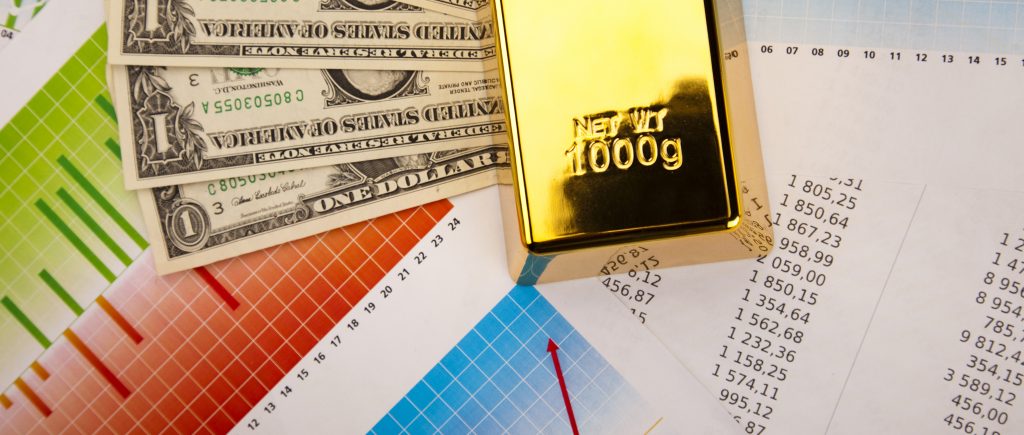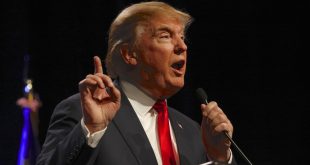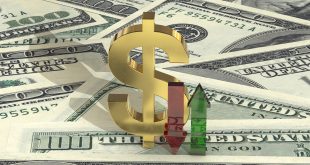Following Powell’s remarks at Jackson Hole about possible policy easing in September, gold prices surged. Powell mentions labour market-linked concerns as well as inflation management; while some Fed officials reiterate forecasts for rate cuts.
US durable goods orders increased 9.9% in July, indicating a robust economy; tensions in the Middle East increase demand for gold. As US 10-year rates rise to 3.81%, traders trim their wagers on 50 basis points, waiting for Nonfarm Payrolls to provide additional information.
Amid growing speculations that the US Fed would start to ease its monetary policy in September, gold continued to rise on Monday. After Fed Chair Jerome Powell stated, “The time has come for policy to adjust,” during his speech at Jackson Hole, this has given gold more momentum. At $2,518 per troy ounce, the XAU/USD exchange is up just 0.24%.
Jerome Powell stated last Friday that he was concerned about a weakening labor market, implying that employment risks were skewed to the upside, but he was also optimistic that inflation was headed toward the Fed’s 2% target.
Powell approved interest rate cuts and stated that more contraction in the labor market is not desirable. Powell was echoed by other Fed officials who declared, “The time to adjust policy is upon us”, adding that it’s difficult to see what may prevent a rate cut in September.
While acknowledging that it’s too soon to predict the extent of interest rate cuts, Some Fed officials said that “we will need to be more aggressive” if the economy contracts “more than anticipated.”
US durable goods orders exceeded the prediction for a 4% growth in July, rising from a -6.9% loss in June to a 9.9% MoM expansion. This was the biggest increase since May 2020, suggesting that even though the economy is slowing down a little, it is still strong.
As the Israel-Hezbollah confrontation intensified over the weekend, growing tensions in the Middle East provided a lifeline for gold prices. Concerns that the war might get bigger would be advantageous to the precious metal.
The yield on US Treasury bonds has increased, and the benchmark US 10-year note increased by one basis point to 3.81%. In the meantime, traders lowered their wagers that the September meeting would see a 50 basis point rate drop by the Fed.
According to the CME FedWatch Tool, market participants have fully priced in a 25 basis point drop. The probabilities of a bigger magnitude have decreased to 30% from 36.5% on Friday.
The August Nonfarm Payrolls report will be the final piece in the puzzle to determine the extent of the decrease, as the Fed is now turning its focus toward the jobs market.
Market Drivers: Gold price advances ahead of Key Inflation Report
The gold price upswing will continue if US economic data remains weak, which will fuel speculation about a larger rate cut. The US Conference Board will release its August Consumer Confidence data on Tuesday. It is anticipated to rise from 100.3 to 100.6. The second estimate’s Gross Domestic Product (GDP) numbers for Q2 are anticipated to increase from 1.4% to 2.8%.
This Friday will see the release of the Core Personal Consumption Expenditures (PCE) Price Index, the Fed’s preferred inflation indicator. It is anticipated to increase YoY from 2.6% to 2.7%.
Gold, Technical Factors: Uptrend is intact, Buyers eying $2,550
Although buyers have not succeeded in regaining the all-time high (ATH) of $2,531, the gold market is still trending upward. If the latter is breached, the $2,550 and $2,600 marks will become visible.
Conversely, a test of the prior all-time high (ATH) of $2,483 will be supported if Gold manages to close each day below $2,500. If exceeded, Gold’s next support would be the $2,450 top on May 20th, and then the $2,406 50-day Simple Moving Average (SMA).

 Noor Trends News, Technical Analysis, Educational Tools and Recommendations
Noor Trends News, Technical Analysis, Educational Tools and Recommendations




